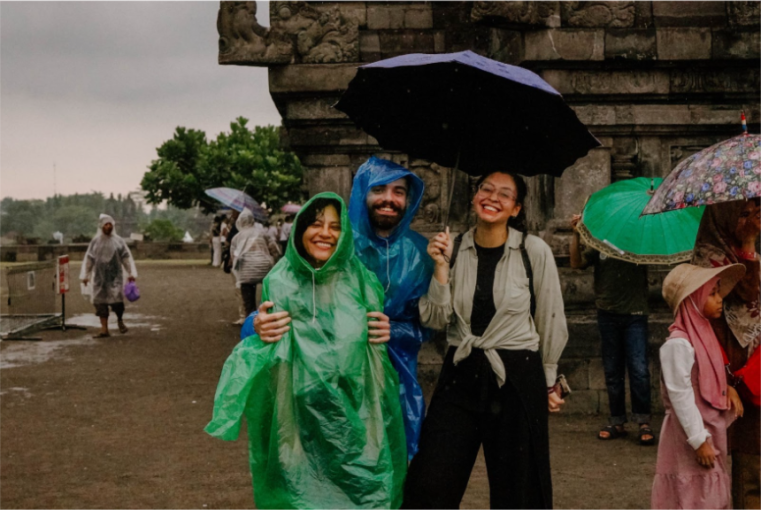
Yogyakarta, 31/05/2025 – At INCULS (Indonesian Language and Culture Learning Service), learning Bahasa Indonesia goes beyond the classroom. One of the approaches used is contextual learning—bringing students closer to the culture behind the language. A perfect example of this was the recent field trip to Borobudur and Prambanan Temples on May 31, 2025, with the 2024/2025 KNB (Kemitraan Negara Berkembang) scholarship students. Both temples are UNESCO World Heritage Sites that hold rich historical and cultural significance, making them ideal learning destinations.
The journey began early in the morning at the Faculty of Cultural Sciences, with participants traveling by bus. After a two-hour ride, the group arrived at Borobudur Temple in Magelang. There, students climbed the temple while listening to explanations from a local guide about the history, architectural structure, and philosophical meanings behind the stone reliefs carved into the temple walls. The interaction between the students and the guide was active and lively, with many students asking questions, recording the explanation, and taking photos to document the experience.
After exploring Borobudur, the group headed to Kampung Ulam Restaurant for lunch.The menu featured traditional dishes such as Javanese style fried chicken, empal bacem, sautéed vegetables, tempe, sambal, and crackers. Beyond being a break from the trip, the lunch provided an opportunity to experience local food culture in a friendly and relaxed setting.
The journey continued to Prambanan Temple in Sleman, Yogyakarta, where the group arrived around 4 p.m. Despite the cloudy weather, the visit went smoothly. At the site, students listened to further explanations from the guide about the history of Prambanan, the values reflected in its reliefs, and the legend of Roro Jonggrang, which is closely linked to the temple’s origin story.
This field trip was more than just a sightseeing tour. It was part of INCULS commitment to making language learning more meaningful. By visiting cultural and historical sites, students not only improve their language skills, but also develop a deeper understanding of Indonesian identity and traditions. Experiences like this help students connect more personally with the language and culture, and also a great way to build friendships and memories during their time in Indonesia.

